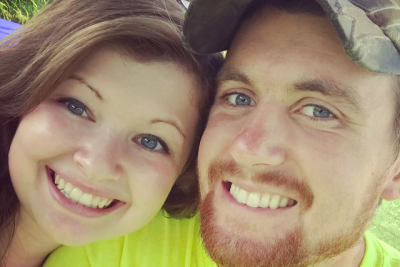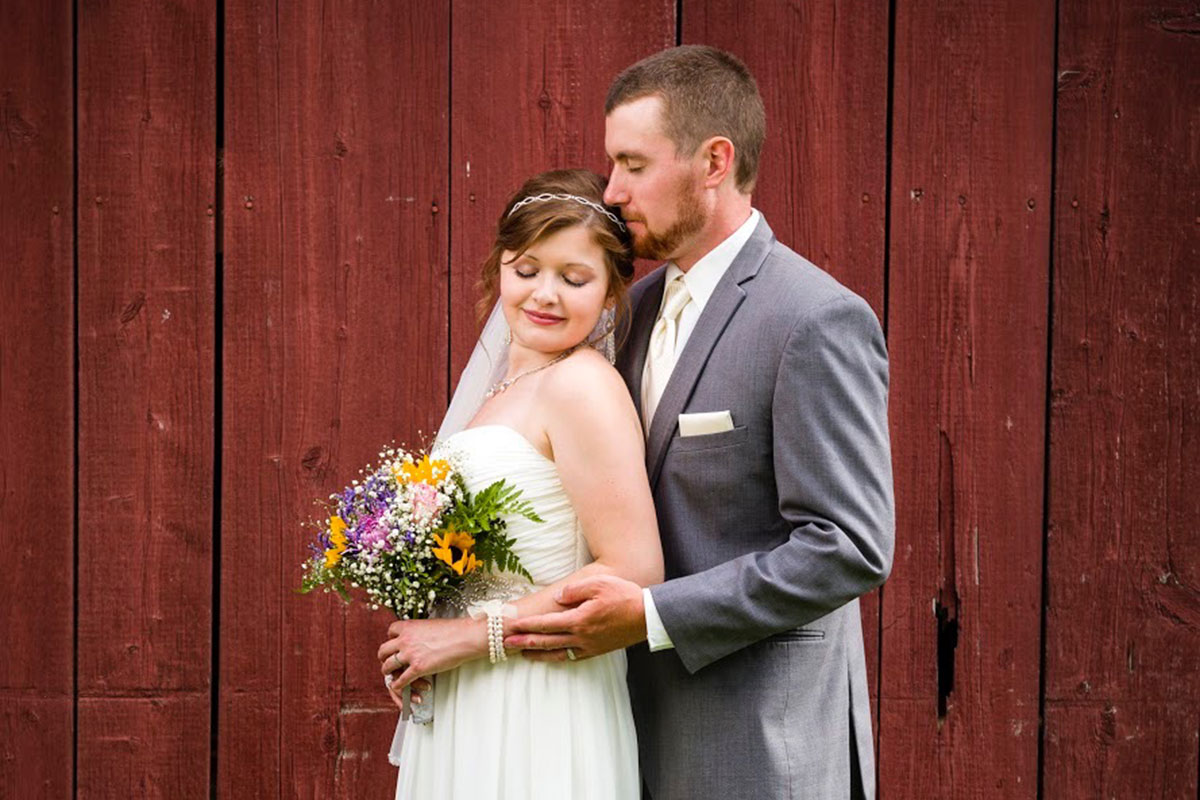How Proton Therapy Gave Me a Second Chance — and Led Me to My Wife: Josh’s Story
Josh was about to graduate from college when he received the devastating news that he had a brain tumor. After researching many options, he came to Memorial Sloan Kettering and received proton therapy under the care of radiation oncologist Suzanne Wolden. Today, Josh has no evidence of disease and is ready to start a new chapter with his wife.

- Josh Roe learned he had a brain tumor during his last semester of college.
- After multiple consultations, he decided to come to Memorial Sloan Kettering, where he met MSK radiation oncologist Suzanne Wolden.
- Dr. Wolden thought Josh would be an ideal candidate for proton therapy, a targeted form of radiation therapy that can spare healthy tissue.
- After five weeks of proton therapy, Josh had no evidence of disease.
- He met his wife, a fellow patient, after undergoing treatment.
Josh Roe was in class when he started experiencing double vision.
It was January 2015, and Josh, now 23, was beginning his last semester of college. He left campus so that his dad could take him to the eye doctor. When he was there, he got a feeling something was seriously wrong.
“The doctor looked into my eyes, went back to her desk, and didn’t really say much,” recalls the natural gas technician from Hallstead, Pennsylvania. “She kept picking up the phone and talking quietly to somebody, which made me worried.”
The doctor told Josh that he had a massive hemorrhage in his optic nerve and that he needed to go to a hospital right away. At a local hospital, Josh learned he had a brain tumor that was preventing his brain from distributing spinal fluid through the rest of his body. The tumor, which was about the size of a golf ball, was blocking Josh’s optic nerve and caused the hemorrhage.
Weighing His Options
A team of surgeons installed a shunt to release some of the blockage, but Josh and his family needed to figure out what to do about the tumor itself. An oncologist at the local hospital recommended chemotherapy and radiation, but Josh wanted to seek other options.
Josh went back to work on his family’s farm to maintain a sense of normalcy. He remained stable until he collapsed one weekend while working on the farm. He visited another oncologist, who also recommended chemotherapy and radiation, which Josh again declined. He spent time pursuing alternative treatments and, after that, had phone consultations with neurosurgeons across the country, including at Memorial Sloan Kettering.
Josh and his family opted to meet with MSK’s Suzanne Wolden, a radiation oncologist who specializes in treating children and young adults. Dr. Wolden told the Roe family that Josh would be a candidate for proton therapy, which uses charged particles called protons to target tumors.
Proton Therapy
Protons are able to reach tumors very precisely so that other healthy parts of the body are not damaged by radiation. As a result, people who receive this treatment don’t typically suffer some of the typical side effects of radiation therapy, like nausea or a low blood count. Josh needed craniospinal proton therapy, which is radiation to his whole brain and spine.
“When you treat the whole spine with traditional radiation, you affect lots of healthy tissue, including the heart, lungs, stomach, and pancreas, and even the bones,” Dr. Wolden says. “That can cause short-term and long-term effects. But with proton therapy, the beam hits only the spinal cord and stops there.”
The Right Treatment for Josh
Josh felt that proton therapy was the treatment plan he had been waiting for.
“It was different from anything I had ever heard of,” he says. “Dr. Wolden was very confident, and she made me confident.”
Over the course of five weeks, Josh underwent 25 days of proton therapy. He experienced some hair loss, but other side effects were minimal. When the treatments concluded, Josh had no evidence of disease.
Josh’s treatment sessions took place at a facility in Somerset, New Jersey. Starting in the summer of 2019, MSK patients will receive proton therapy at the New York Proton Center in Manhattan.
A Shared Story
While Josh was in the office for a follow-up scan one day, his father met the grandfather of another young patient, Katie, in the waiting room. Katie had had surgery for a benign brain tumor but did not need proton therapy or any other form of radiation afterward.
Josh and Katie’s families organized a dinner for the two of them to meet. When they finally did, there was an instant bond over their shared experience. They soon started dating, and in July 2018, Josh and Katie got married.

“I am very grateful for Dr. Wolden because she led me to my wife,” Josh says.
Today, both Josh and Katie are doing well. Josh sees Dr. Wolden every few months for follow-up MRIs and blood tests. Katie, too, sees Dr. Wolden for follow-up observations.
It’s been two and a half years since Josh’s diagnosis, and he has not had a recurrence. Katie continues to be in good health as well. Dr. Wolden beams when she talks about the young couple.
“I think they understand each other well because they’ve been through similar experiences and they’re both resilient,” she says.
The couple lives on the Roe family farm in the house that Josh’s grandparents used to live in. They are excited to build their future.
“We want to make the most of every day without recent stresses hanging over our head,” Josh says. “We’ve both come through a phenomenal amount of trials in our short lives. My family has been on this farm since 1838, so this place is part of me. And now I have my beautiful wife to share it with.”


